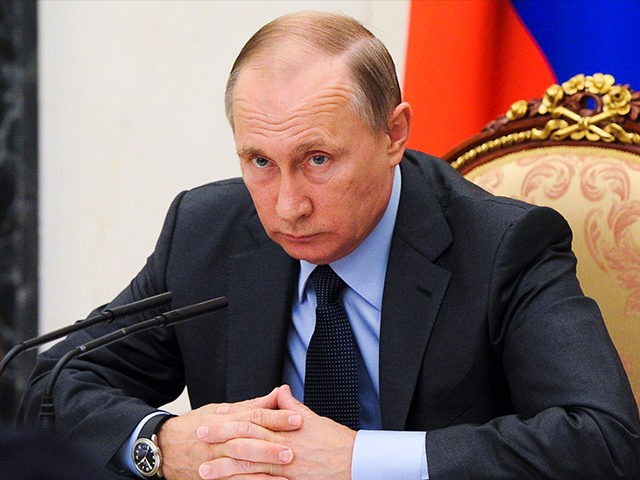The Pew Research Center has released a new poll in which 79 percent of Americans said the Islamic State remains the top menace to the well-being of the United States.
The partisan split on other perceived threats in the Pew poll was interesting, especially the landmark finding that, after months of media hysteria about Russia “hacking the 2016 election” and stealing certain victory from Hillary Clinton, Democrats see Russia as a bigger threat than Republicans do.
Cyber-warfare from foreign actors took second place at 71 percent in the Pew poll — also likely a result of the media’s obsessive focus on the role of hacking in the 2016 election. It will be interesting to see if Democrats can reconcile their newfound devotion to information security with President Obama’s clemency for WikiLeaks source Chelsea Manning.
Next came North Korea (64 percent), Russia (54 percent), and China (52 percent). Interestingly but not surprisingly, given the media focus after the election, Russia is now viewed as a top threat by more Democrats (67 percent) than Republicans (41 percent), quite possibly for the first time in the history of opinion polling. Overall, Russia picked up 12 points on Pew’s threat-o-meter since last April, when only 42 percent of respondents described it as a major threat.
Rounding out the top survey results for perceived national security threats were global climate change, tied with China at 52 percent; the large number of refugees from Iraq and Syria at 46 percent; and the Israeli-Palestinian conflict at 43 percent.
Pew notes there is a strong partisan divide in many of these assessments, most significantly on climate change (viewed as a major threat by 77 percent of Democrats vs. only 25 percent of Republicans) and refugees (63 percent Republican, 30 percent Democrat).
The partisan gap on Russia was impressive as well and, as mentioned above, a complete inversion from the predilections of the two parties just a few years ago. 67 percent of Democrats now say Russia’s power and influence is a major threat, compared to just 41 percent of Republicans.
Pew also points out that while the Israeli-Palestinian situation is seen as worrisome by roughly equivalent percentages of Democrats and Republicans, there is an enormous split over which side each party sympathizes with.
74 percent of Republicans said they side with Israel, while only 11 percent side with the Palestinians, and 15 percent had mixed opinions. For Democrats, 33 percent sided with Israel, 33 percent with the Palestinians, and 35 percent had mixed opinions. Pew states that the Republican numbers have been fairly constant over the last few years, and Democrats’ sympathy for Israel fell 10 points over the past year. The gap between the two parties is now the largest recorded since 1978.
The two parties also have almost exactly inverse opinions of Israeli Prime Minister Benjamin Netanyahu: 50%/22% positive for Republicans, 45%/21% negative for Democrats. Self-identified “liberal Democrats” have an exceptionally poor view of Netanyahu.
One other finding of significance as President Trump proceeds with his first Hundred Days: public opinion of the United Nations is 62 percent positive, largely unchanged from last year’s rating. Here again, there is a very large partisan gap, as 81 percent of Democrats view the UN favorably, while only 44 percent of Republicans do.
Trump has been strongly critical of the United Nations, especially its recent anti-Israel vote, and a bill to withdraw America from the United Nations has been introduced by Rep. Mike Rogers (R-AL).

COMMENTS
Please let us know if you're having issues with commenting.